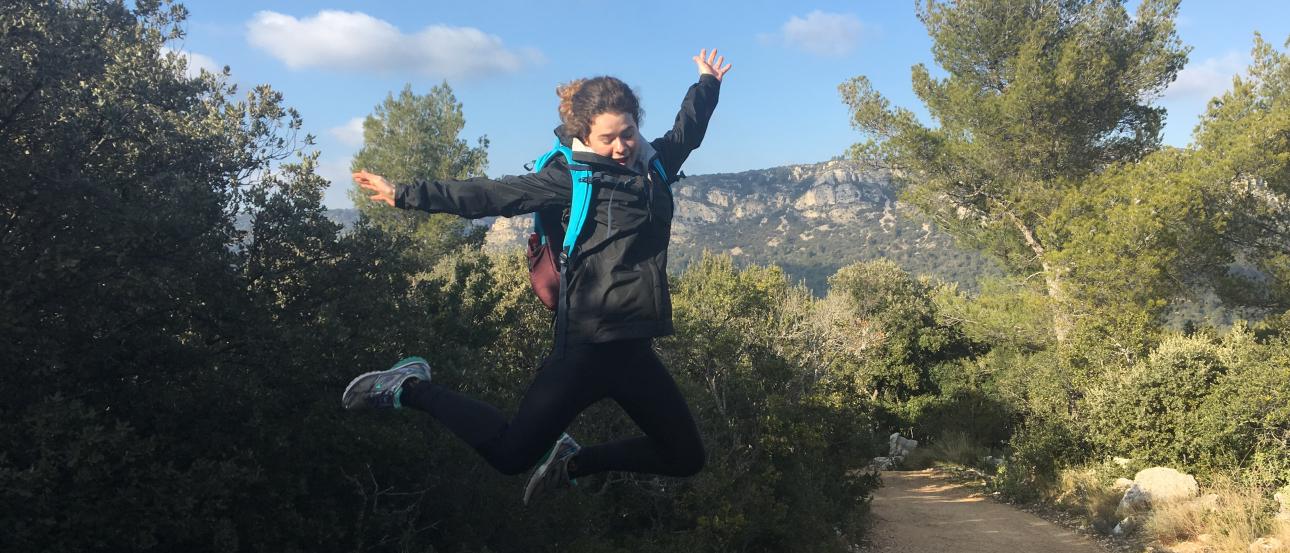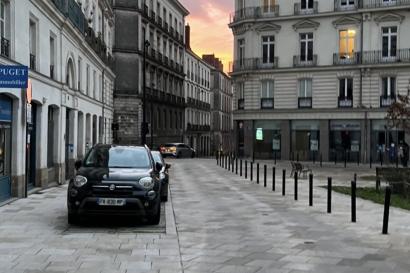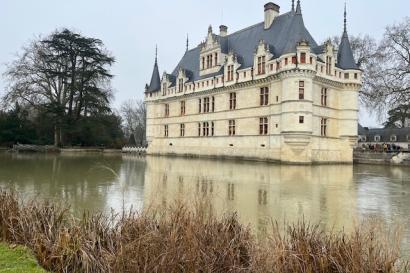Being an American in France looks different for just about everyone.
Inevitably, French people will pick up an accent when you’re speaking French with them. No matter how hard you try, there are often moments in the money exchange at a restaurant or the coffee receival at a cafe when the person on the other side notices you speak a little bit differently. I don’t know if they pick up the speed at which I speak (is it slower than a typical French person?) or the grammar (it’s not perfect, I know) or the pronunciation of certain words, but it is often that they’ll follow with “Where are you from?” When I say the United States, they usually seem slightly impressed or surprised. I think there exists an assumption that in general, Americans do not speak French. I suppose this assumption has some truth, as there are 1.2 million French speakers in the U.S. Out of a population of about 325 million, that’s less than 0.4%. But, for those who do—and this includes those who are learning and aspire to—that’s a whole lot of people and a whole lot of knowledge.
But beyond the coffee-shop encounters, knowledge about American culture is prolific, and that is something I take for granted. Many people I’ve met have travelled or wish to travel to the United States. Often, it’s New York or California (two of the most familiar and popularized spots in the U.S.), but you also meet the occasional person who’s actually been to Burlington, Vermont. When I meet people, there is an internal debate in my head of whether I should try to explain where I go to school (in the small state of Vermont) or where I grew up (close to Boston, relatively). I usually opt to explain that I’m from near Boston, since it's a pretty well-known name that people usually associate with either historical events they’ve learned that transpired in Boston during the Revolutionary War, sports teams, or well-known universities.
But as American culture is relatively well-known in France, it also means that stereotypes are also very present. Stereotypes are inevitable and everyone has them, but they’re not all bad. Many people in the U.S. still believe in the cliché image of a Frenchman wearing a beret and mariners top, a dark mustache, and carrying a baguette no matter the occasion. And French people have some ridiculous assumptions about Americans, too, like that we all really like barbecue, that Americans are all rich, that every car on the road is a massive one, and the unavoidable stereotype that all Americans are fat. Stereotypes are a cultural tool we fall back on to limit the amount of critical thinking and processing we need to do. Because of this, they don't explain truths and they require questioning. While these are some stereotypes of Americans, there is not one story for each American. In fact, there are over 320 million ways to be American. I always get surprised looks when I explain that I’m vegetarian (and that I have many American friends who are, too). That is a simple example of breaking a stereotype.
I’ve reminded myself not to overthink my identity as an American abroad. This seems like rudimentary advice, but I think I am prone to feeling that these interactions will have gravity. These are some truths I’ve tried to remember: chances are, the person you are meeting has met other Americans in their lifetime. The impression you give of the United States is probably a good one, if not neutral. So, to consume yourself with the idea that you must represent an entire country will just cause you distress, and you’re only human. You’re yourself, and you’ve experienced everything you have in your lifetime to lead you up to this point—no more, no less. And despite everything the news portrays, the politics, and the anomalies, I am proud to be American.
So, I’ve tried to define for myself what it will mean to be an American in France. And at the end of the day, no matter how many fumbles you’ve had in conversations or wrong turns you’ve taken or looks you’ve received, you belong here just as much as anyone else. American, French, fluent or not, you have a place here.

Genevieve Winn
I remember creating things from a very young age. What began as duct tape figurines and short stories as a child have transformed into projects of scale today. One of my favorite activities is to sew, but I also love to write. Self-expression through art and writing has always been a strong part of my identity. My hope for the future is to bring my creativity into the world in new ways by creating relationships with people and helping to create solutions to real-world problems. Learning another language is, I think, an important piece to understanding the world a little better, and to knowing how to better serve the people in it. As an IES Correspondent, I hope my writing can help other students to understand study abroad, me, and the beautiful world around us through my daily adventures!








